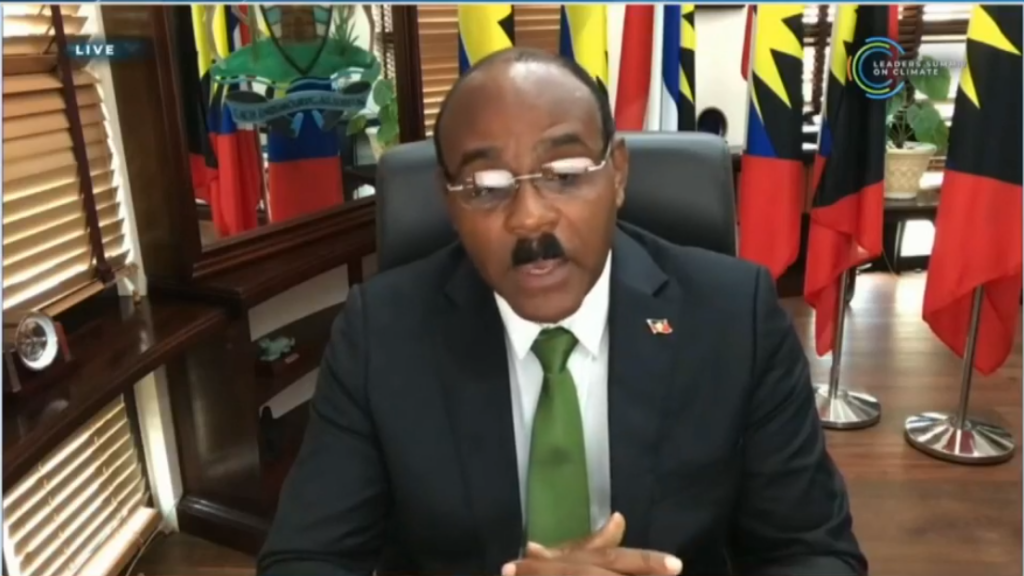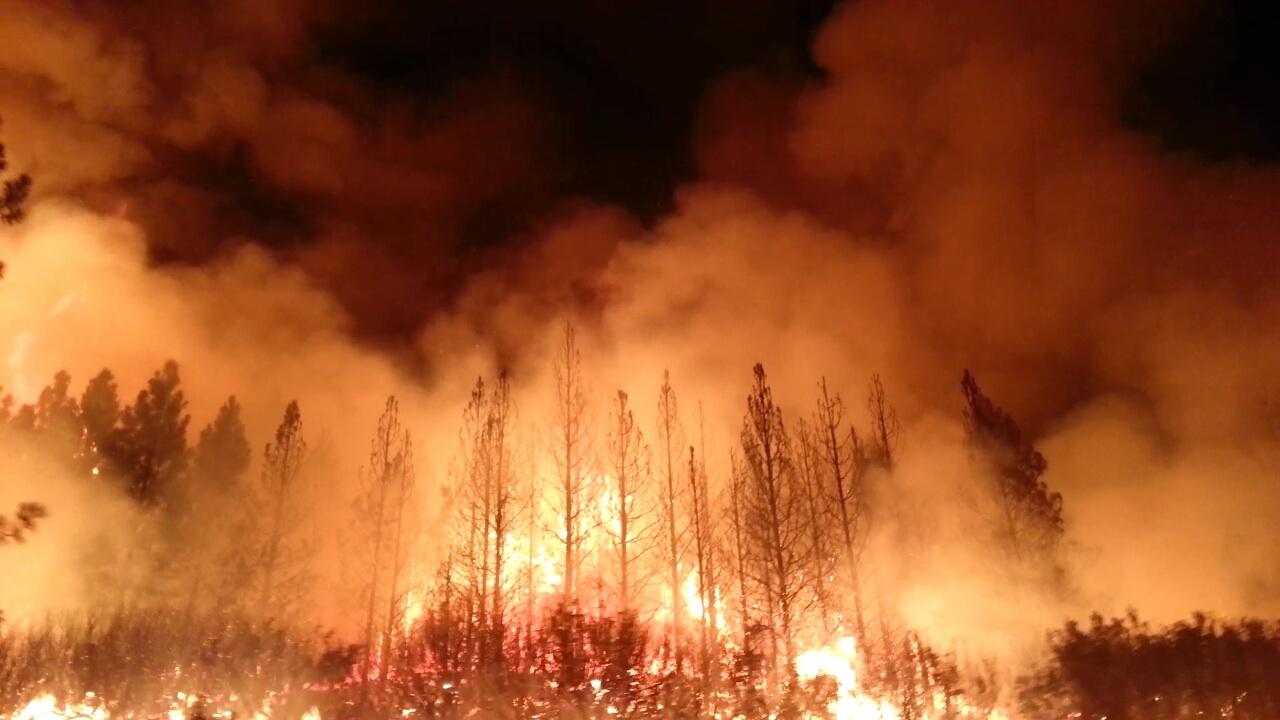MSc Development Studies alum, Alejandra Padin-Dujon, analyses the key points in an address by Prime Minister of Antigua and Barbuda, Gaston Browne, at the US Summit of 40 Leaders on Climate Change, 22-23 April 2021. This article first appeared in Ale in Antigua.
Two Caribbean heads of state were invited to U.S. President Joe Biden’s “Summit of 40 Leaders” on April 22-23, 2021. One of these was none other than Prime Minister Gaston Browne of Antigua and Barbuda. Those interested in reading PM Browne’s full remarks, which are brief, may find them here. For commentary, however, keep reading. Below, you will find key passages from his speech, annotated with a sprinkling of opinion and a liberal helping of context.

The remarks
- “The 44 [Alliance of Small Island States (AOSIS)] members, are the least contributors to greenhouse gas emissions, but the most affected by climate change.”
This is not a terribly new or remarkable take on the plight of small island developing states (SIDS). Nonetheless, it was a critical point to raise in light of wealthier countries’ tendency to assign uniform culpability and obligations to all members of the international community. Just as COVID-19 is not, in fact, a “great equalizer” where “we are all in the same boat,” not all countries suffer equally from climate change. Neither do all countries have the same resources, or bear the same blame, in this matter. PM Browne and other Caribbean leaders push deliberately against homogenizing narratives in recognition of the fact that the future of global climate policy depends on identifying resources and obligations where they actually exist.
- “Collectively, [AOSIS emits] just 1.5 percent of the emissions of industrialized nations, and many of them have already begun to roll out ambitious programmes to reduce their small carbon footprint, particularly in renewable energy.”
Aha! Here we go. Without contradicting his earlier point about the minimal culpability of SIDS in creating the problem of climate change (“small carbon footprint”), PM Browne draws attention to climate mitigation efforts: namely, investment into renewable energy.
Global climate discourse is still dominated by developed, high-emitting countries, and as a result, climate mitigation (i.e., reducing greenhouse gas emissions) is a hot topic, whether or not the country in question actually pollutes significantly. It has been a long and arduous fight for climate-vulnerable developing countries to draw attention to the need for adaptation measures, and even now, many nations with the luxury of treating climate change as an impending problem and not a current one, call this attitude defeatism. To remain well-regarded players in the climate game, even SIDS need to participate in climate mitigation schemes. Declarations of commitment to renewable energy feed into a global hunger for technology-driven climate change solutions.
- “For some small states, even these inadequate instruments [from international financial institutions] are denied, because of the false criterion, of middle and high per capita income, which ignores the huge vulnerabilities that small states face.”
PM Browne’s main point here echoes previous remarks by Prime Minister Mia Mottley of Barbados, and possibly others, regarding the need to revise the rules of official development assistance (ODA). Oftentimes, choice remarks are directed toward Paris Club members for their dealings in the Caribbean as well. Climate vulnerability is a costly and destabilizing threat to SIDS finances, and this need is often neglected – especially in the Caribbean – due to World Bank classifications by per capita income. PM Browne’s case here is particularly salient for Antigua and Barbuda: the country was recently “upgraded” from upper middle income to high income in 2020, and is faced with drastic reductions in its access to ODA in the process. Most Caribbean islands are classified as middle or high income.
- “Over the years, the debt of small states has risen to unsustainable levels, because of repeated borrowings to rebuild and recover from continuous debilitation by natural disasters, arising from climate change […] This requires action to design new and innovative financial instruments and to provide debt relief, including debt cancellation, debt suspension, debt rescheduling, debt restructuring and debt-for-climate swaps.”
This is where the Prime Minister enters into territory that might seem contentious for an American, a Brit, or another Western observer, but that is actually par for the course in Caribbean political dialogue. It isn’t radical so much as perceptive – and justified.
The fact is, Caribbean governments feel the crushing weight of a national debt – sometimes above 100% of GDP – that simply cannot be repaid. To add insult to injury, debt is oftentimes the result of wealthier countries’ heinous misdeeds, like the creation of anthropogenic climate change and centuries of colonialism. Caribbean countries’ borrowed funds are often poured into disaster relief efforts and postcolonial economic development. Caribbean debt, in other words, is not really a Caribbean problem. It is a European, American, Canadian, Australian, (etc.) one that is simply borne by Caribbean governments.
Thoughts
PM Browne’s remarks expose the degree to which painting emissions as a universal problem falsely implicates small developing countries and distracts from discussions on adaptation. A subtler, but no less important point is the utter unsuitability of per capita income as an index of need for climate-vulnerable countries. Climate change is a global problem. Yet a lack of global attention to the nuances of prosperity and vulnerability in the developing world persists.
The views expressed in this post are those of the author and in no way reflect those of the International Development LSE blog or the London School of Economics and Political Science.





